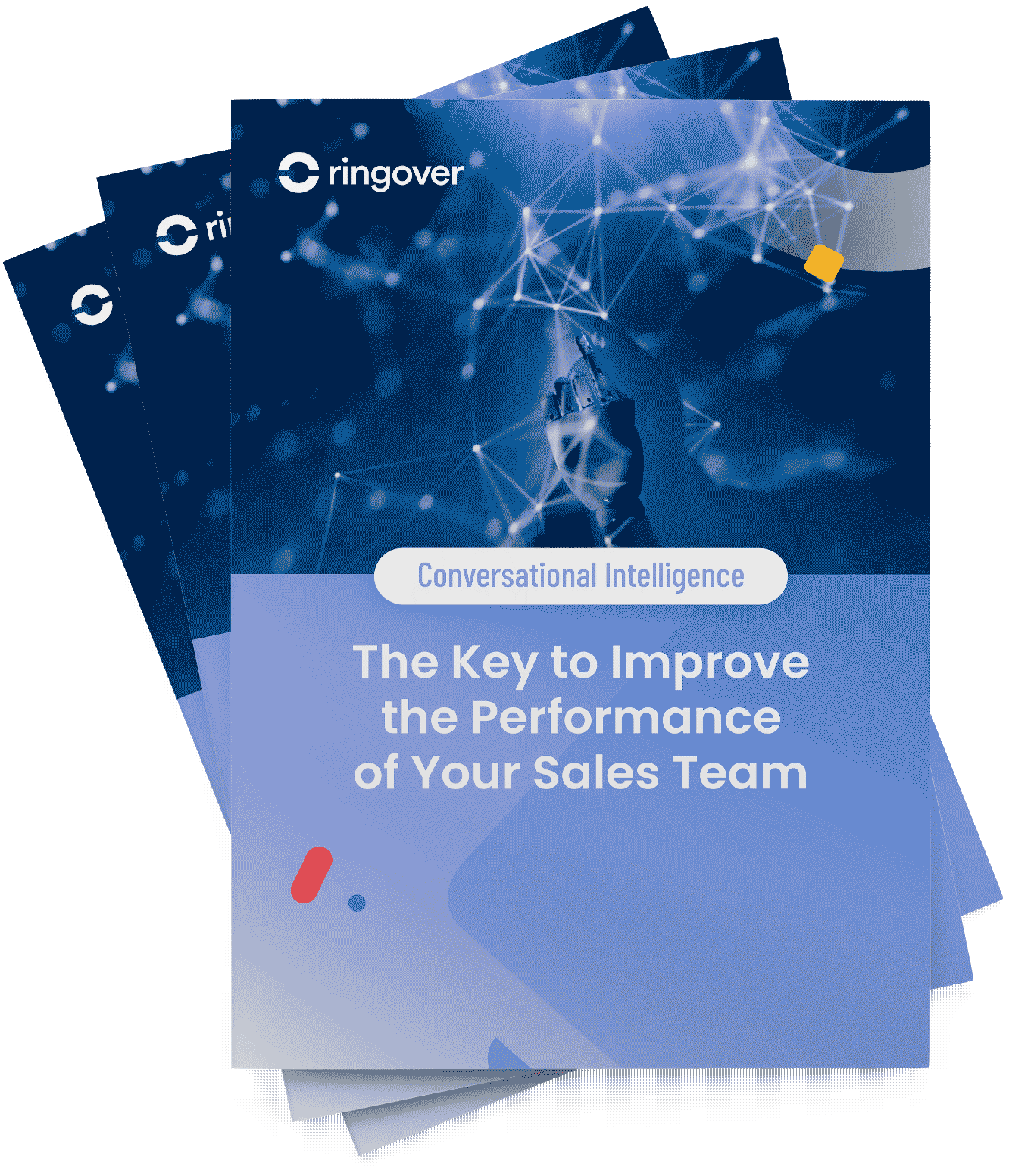Summary
In a world dominated by digital communication, the sales call remains one of the most powerful tools for building meaningful business relationships. According to research, 71% of buyers prefer early contact from sellers via a phone call [1]. Yet, the challenge is real–average cold-calling success rates hover around 2.3% [2].
That's where structured sales call training comes in. With the right preparation, sales strategy, and tools, sales teams can transform their calls from routine outreach into high-converting conversations that close deals and drive revenue.
Why Sales Call Training is Crucial for Success
A structured approach to sales call training is essential for any company that relies on outbound or inbound communication to generate business. It's not just about calling more prospects–it's about calling smarter.
The Competitive Landscape
In competitive industries across B2B and B2C, standing out requires more than a strong product–it demands a skilled, confident, and informed sales team. The best training transforms representatives from simple callers into trusted consultants who can articulate value, handle objections, and build immediate credibility.
The Power of Training Combined with Coaching
Training imparts knowledge. Coaching develops the skill to use that knowledge effectively. When both are combined, productivity can increase by up to 88%. Coaching sessions grounded in real call recordings and data-driven feedback ensure sales reps can turn theoretical lessons into measurable, high-impact performance improvements.
Setting Clear Objectives
A successful training program starts with specific, measurable goals.
Dynamic coaching programs focused on performance outcomes can increase success rates by over 28%. Effective goals might include:
- Increasing the number of qualified appointments per week by 15%.
- Improving the lead-to-conversion rate from 5% to 8%.
- Reducing average call handling time while improving call quality.
3 Steps for Effective Sales Call Training
Phase 1: Pre-Call Preparation for Maximum Impact
Success often begins before the phone even rings. The best sales calls are built on preparation, personalization, and planning.
To make sure your agents are prepared, leverage artificial intelligence technology like Pitch Room. Pitch Room is a role-playing tool which allows agents to practice their sales pitch comfortably. By interacting with various personas and difficulty levels, agents can hone the specific skills they need. Plus, Pitch Room offers personalised and actionable feedback so agents improve performance quickly and effectively.
Building a High-Quality Prospect List
A data-driven approach to prospecting ensures that sales reps focus their energy on the right leads.
Accurate, verified data is key–poor-quality contact information can drain time and cost businesses up to 12% of their annual revenue [1].
Best practices include:
- Defining your ideal customer profile based on needs, industry, and buying power.
- Using reliable data sources or CRM systems to maintain up-to-date records.
- Regularly cleansing and verifying data to ensure accuracy.
Crafting High-Converting Sales Call Scripts
Sales scripts should act as flexible frameworks, not rigid scripts. They give reps structure while allowing for personalization.
A good script includes:
- A strong opening: Capture attention within the first 15 seconds.
- A clear value proposition: Highlight how your solution addresses a specific pain point.
- Engaging questions: Turn the call into a two-way conversation.
- A defined next step: Propose a follow-up, meeting, or demo.
The Importance of Research
Research transforms a generic cold call into a relevant conversation. Personalized outreach is far more effective, showing prospects that you've done your homework and genuinely understand their business [3].
Before each call, review company updates, recent challenges, and potential opportunities. Research resources include LinkedIn, CRM data, or public reports. At times like this, integrating your CRM with your business phone system ensures data is automatically updated and you have key sales tools at hand. For example, integrate Ringover with a CRM like Salesforce or Hubspot to use click-to-call to reach contacts from within your CRM. Your interaction history will be readily available within the CRM, and you can benefit from screen pop-ups with key information about prospects and clients.
Phase 2: Executing a High-Converting Sales Call
Once you're on the call, success depends on your ability to communicate with clarity, confidence, and empathy.
In this phase, an AI tool like AIRO Coach is indispensable. This feature accompanies agents during calls to provide real-time tips, key information, and even suggestions on how to overcome objections. Staying on the road to a sale has never been easier!
Mastering Communication Skills
Every great sales call relies on communication fundamentals:
- Active Listening: Focus fully on what the prospect is saying, and reflect it back to confirm understanding.
- Tone and Pace: Speak confidently and clearly, maintaining an approachable tone.
- Rapport Building: Find common ground–shared challenges, experiences, or goals–to build connection.
To help agents focus on building a strong connection with the prospect, consider leveraging an AI sales coach like Empower by Ringover for post-call analysis and work. This conversational AI tool transcribes, summarizes, and analyzes interactions. By providing advanced AI analytics at the individual and team level, you can easily identify points of improvement. Plus, you can use call moments to create searchable call libraries that sales reps can reference to understand the best practices for any situation.
Handling Inbound vs. Outbound Calls
The approach to inbound and outbound sales calls differs significantly:
| Call Type | Primary Objective | Key Strategy |
|---|---|---|
| Outbound | Create interest and secure a meeting | Lead with a value statement and a clear next step |
| Inbound | Convert interest into action | Provide fast, accurate information and guide the conversation toward commitment [4] |
Navigating Objections Gracefully
Objections are not rejections–they're opportunities. A trained rep knows how to handle them with confidence and empathy.
Try this three-step framework:
- Acknowledge: “I completely understand why you might feel that way.”
- Clarify: “Can I ask what's most important to you in a solution?”
- Respond: Address the concern and reframe the value proposition.
Consistent objection-handling practice prepares reps to respond naturally and persuasively in any situation [5].
Phase 3: Post-Call Strategy for Nurturing and Closing
The sale doesn't end when the call does–it continues through consistent follow-up and relationship nurturing.
The Art of the Follow-Up
Research shows it can take up to eight call attempts to reach a prospect [2]. Persistence and personalization make all the difference.
Effective follow-up includes:
- Sending a quick summary email recapping key points.
- Scheduling the next call before hanging up.
- Tracking all interactions within your CRM or call management platform.
Call Coaching and Performance Review
Post-call reviews help turn every conversation into a learning opportunity. Reviewing call recordings, transcripts, or summaries allows managers to identify patterns, highlight strengths, and address weaknesses across the team.
Using data-driven insights during one-on-one coaching sessions ensures progress is measurable and consistent.
Streamline your sales training thanks to support from the conversational AI tool, which can surface key moments from interactions with prospects, transforming them into valuable learning opportunities.
Leveraging Technology to Enhance Your Sales Training
Technology has transformed how sales teams train, communicate, and perform. With the right digital tools, sales managers can scale training, analyze calls, and optimize team performance faster than ever.
Implementing a Sales Call Center Solution
Modern business communication platforms like Ringover streamline sales operations. With features like automatic call logging, real-time analytics, omnichannel contact center software, and integrated CRMs, teams gain full visibility into performance.
Managers can monitor KPIs such as call volume, talk/listen ratios, and conversion rates—all within a single dashboard.
Gaining an Edge with AI-Powered Sales Coaching
AI-driven tools such as Empower by Ringover revolutionize how teams approach sales call training. Empower analyzes sales conversations for tone and keyword use, providing instant, data-driven feedback.
It automatically transcribes and summarizes calls, identifies top-performing reps, and uncovers insights to improve performance across the team. By using AI to handle post-call analysis, sales professionals can focus on what they do best–building relationships and closing deals.
Conclusion: Build a High-Performing Sales Team
High-converting sales calls are built on preparation, execution, and follow-up. Sales call training is not a one-off activity–it's an ongoing process of improvement, powered by feedback, technology, and consistency.
By combining structured training with advanced tools like Empower by Ringover, teams can unlock insights from every conversation, coach in real time, and build a repeatable system for success.
When executed effectively, sales call training doesn't just increase conversions–it transforms your entire sales organization into a high-performing machine. Start your free Empower trial today!
Citations
- [1]https://salesgenie.com/blog/cold-calling-statistics-for-sales-representatives
- [2]https://cognism.com/blog/cold-calling-success-rates
- [3]https://continentalmessage.com/blog/convert-callers-into-customers
- [4]https://pipedrive.com/en/blog/cold-calling-scripts
Published on October 8, 2025.



